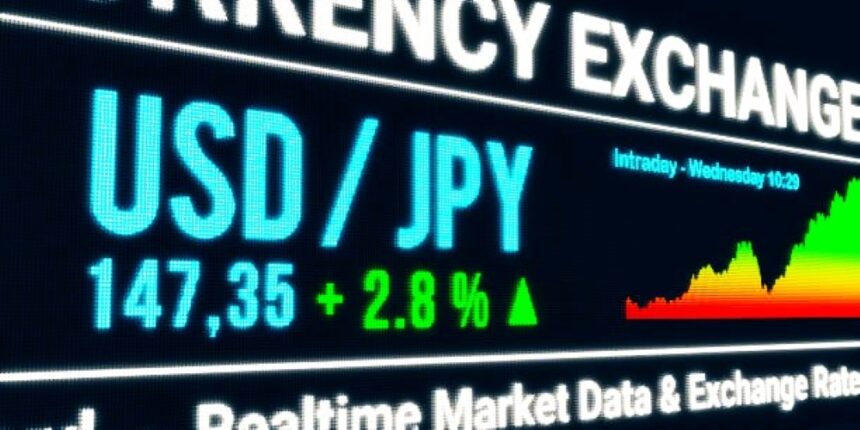Japanese yen falls in the wake of BoJ policy uncertainty and a risk on sentiment.
The Japanese Yen (JPY) attracts new sellers on the opening day of a new week, following Friday’s slight bounce from around the year-to-date low. And is weighed down by uncertainty about the Bank of Japan’s (BoJ) next policy move. On Friday, Bank of Japan Governor Kazuo Ueda maintained. That it was too early to declare victory over inflation. This, together with a Japan’s recession has led to speculation that the BoJ’s intention to tighten monetary policy may be delayed. However, BoJ board member Hajime Takata’s hawkish remarks this week. Combined with anticipation for another significant wage increase, kept hopes alive for an impending shift in the central bank’s policy position.
US data puts the USD bulls on the defensive and may cap USDJPY.
The underlying strong positive attitude in the equities markets is perceived. As eroding the JPY’s relative safe-haven position. The USDJPY pair, on the other hand, has struggled to attract major purchasing in the wake of sluggish US Dollar (USD) price action.
Traders are anticipating the Tokyo CPI report on Tuesday, which comes ahead of this week’s major US economic data.
Traders also appear hesitant to make big directional bets. Preferring to wait for the Tokyo CPI report on Tuesday. Investors this week will also face crucial US macro data slated at the beginning. A new month begins, with Nonfarm Payrolls (NFP) on Friday. And Fed Chair Jerome Powell’s congressional hearing on Wednesday and Thursday.
Daily Market movers: The Japanese yen is hurt by the BoJ policy uncertainty.
Mixed signals from Bank of Japan policymakers last week. Combined with the underlying positive attitude in the equities markets, continue to operate as a drag on the safe haven Japanese yen.
Hajime Takata, a board member of the Bank of Japan, stated this week. That the central bank should reconsider its ultra loose monetary policy as the 2% inflation target approaches.
BoJ Governor Kazuo Ueda, meanwhile, said it was too early to declare. That inflation was near to sustainably attaining the 2% objective, emphasizing the need to monitor More information about the wage forecast.
Furthermore, Japan’s recession, combined with somewhat higher domestic consumer inflation, adds to uncertainty regarding the BoJ’s future policy decisions, keeping JPY traders on the sidelines.
Media reports, citing sources, imply that the Japanese government has begun considering declaring an official end to deflation two decades after admitting that prices were decreasing mildly.
The US Dollar is under pressure from Friday’s poor ISM Manufacturing PMI, which fell more than expected to 47.8 in February, down from 49.1 the previous month.
Other features of the survey showed that the Employment Index decreased to 45.9 from 47.1, the New Orders Index retreated to 49.2 from 52.5, and the Prices Paid Index The number dropped to 52.5 from 52.9.
University of Michigan’s Consumer Sentiment Index fell short of forecasts in February, dropping to 76.9.
Furthermore, the University of Michigan’s Consumer Sentiment Index fell short of forecasts in February. Dropping to 76.9, despite inflation expectations being consistent.
Fed Governor Adriana Kugler stated that progress toward disinflation will continue. While Richmond Fed President Thomas Barkin predicted that overall inflation will fall in the next months.
Austan Goolsbee, President of the Chicago Federal Reserve, stated that the policy rate is fairly restrictive. While Dallas Fed President Lorie Logan stated. That it will be reasonable to limit the pace of balance sheet contraction.
US Treasury bond yields fell on Friday following Fed Governor Christopher Waller’s comments. That he would prefer the central bank to Increase its short term Treasury holdings.
Investors now look forward to the release of the Tokyo CPI report on Tuesday for a new push. Ahead of the month of major US macro data, including the crucial Nonfarm Payrolls on Friday.









